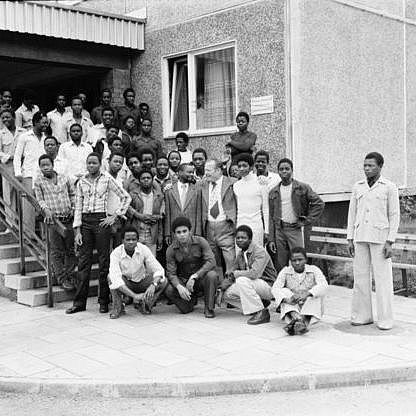'We are Workers, Not Inmates!': The Politics of Space in Mozambican Workers’ Company Dormitories in East Germany (1979-1990)

Lea Marie Nienhoff | Master Thesis, 2019
The legacy and memories of East Germany are unexpectantly present in Maputo, the capital of Mozambique. Every Wednesday morning, a large group of Mozambican men and women, who worked and lived in the cities and villages of East Germany from 1979-1990, gathers for a manifestation. Draped into German flags they walk down the street singing and drumming, demanding to be paid their outstanding wages, the 25% to 40% that were withheld from what they earned in the factories and mines of East Germany.
This master thesis is a historical ethnography of the spatial practices of Mozambican workers in East German cities and towns. At the core of the study are the company dormitories to which contract workers were assigned. While being places of instruction and control, Mozambican workers found individual and collective strategies to challenge the legitimacy of space constraints. Building on archival documents and oral history, the thesis depicts the ways in which Mozambican workers transformed the poor and degrading environment of the dormitories into a home—and sometimes even into a place of dignity, safety and youthfulness. Mozambican workers created a strong community and networks of support through which they collectively resisted the paternalistic practices of control by German and Mozambican authorities in the dormitories and beyond. The architecture of company dormitories and the system of control inside resembled spaces of colonial exploitation, in the midst of a socialist society. Workers’ and migrants’ struggles, the thesis concludes, are closely intertwined with the materiality of the accommodations they are bound to and the social space produced around them.
Quick Links
